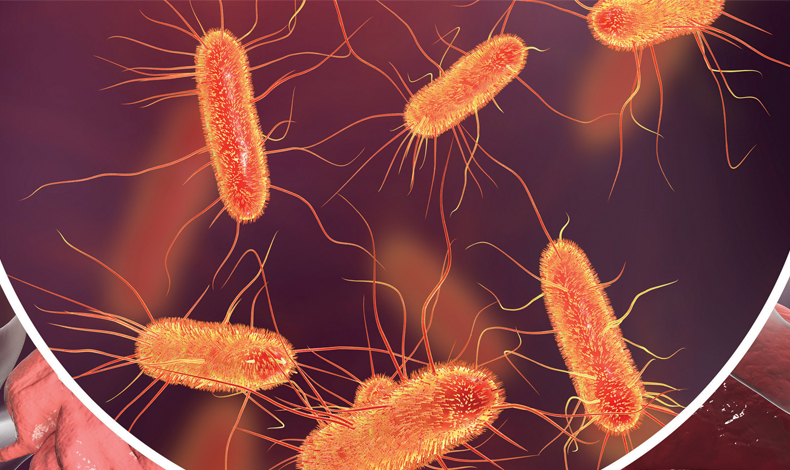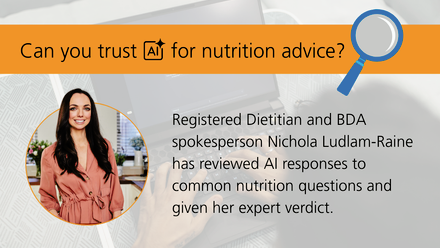With the ever-growing list of diets advertised, are there any that actually help to improve overall health and wellbeing? Registered Dietitian Reema Patel looks at some of the most popular diet trends for 2022.
Keto
A Ketogenic diet, or ‘Keto’ for short, is a very low carbohydrate, high fat diet. The aim is to push our metabolic state into ketosis, to allow the body to use fat for it’s primary fuel source instead of glucose. There are various types of keto diets, but typically it involves a diet of around 70% fat, 20% protein and 10% carbohydrates (where carbohydrate intake is as low as 20-50g per day).
It is recognised as a treatment for epilepsy, but there are now many claims of keto being a trendy way to lose weight.
There is some research to show that a keto diet can aid in weight loss, especially in the short term, and may help improve insulin sensitivity. However it is often not sustainable for many people in the long term, especially when eating out and socialising. Constipation can be a common reported side effect and overall a keto diet can be quite expensive with a focus on higher animal protein.
Gut health
In recent years, there is plenty of research to show that our gut health and microbiota can influence our overall health. There is also some research suggesting that the way our bacteria digest food can influence our hunger signals and perhaps help make us feel full, which also links to our weight management. With this, there has been a surge in probiotic containing foods such as kefir, kimchi and kombucha on the market, as well as taking probiotic supplements.

Whilst these foods are generally recommended to increase the biodiversity of gut microbiota, further research needs to be done to fully explore how supplementing with probiotics can help to not only improve gut health but also influence our weight.
Veganism
In addition to limiting meat, poultry and fish, vegans will also eliminate any other animal products, such as dairy, cheese and eggs. There may be various reasons why someone may choose to become vegan, not only for weight loss. These include for ethical or moral reasons and environmental reasons due to the impact of animal farming, or for health reasons, with the link between processed intake and risk of certain disease.
Eliminating animal based products can allow someone to vastly increase their consumption of plant based foods, such as fruits, vegetables, beans & pulses as well as nuts and seeds. Diets may be naturally lower in saturated fat and higher in unsaturated fats and phytochemicals, which may be protective for health.
However, a vegan diet may also be high in processed ready-made vegan meat substitutes, as well as snacks which can be high in salt or sugar. It is important to also check with a Registered Dietitian if any vitamin or mineral supplementation is needed when on a vegan diet, as essential nutrients such as Vitamin B12, calcium, iodine and Omega 3 fatty acids can be missed.
DASH
The DASH diet stands for ‘Dietary Approaches to Stop Hypertension’. As the name suggests, this diet was introduced in the 1990s, aiming to reduce high blood pressure. In more recent years, the DASH diet has also been promoted to aid with weight loss as well as reducing the risk of stroke, high cholesterol, type 2 diabetes and even some types of cancers.
Parts of the diet include a focus on more lean poultry, seafood, wholegrains, fruits & vegetables with low fat-dairy. There is an effort to reduce red and processed/cured meats, added sugars and minimise alcohol intake. Certain nutrients such as potassium, calcium and magnesium are highlighted, as these help reduce endothelial dysfunction. The DASH diet also requires people to exercise for at least two hours and 30 minutes a week.

Mediterranean diet
Following on from the DASH diet, the Mediterranean diet follows similar principles. Something to note with the Mediterranean diet however, is that there are no restrictions on any food groups. All foods can be included, though there is particular emphasis on vegetables, fish & seafood, lean poultry, whole grains, pulses and beans, as well as extra virgin olive oil, nuts, seeds and red wine in moderation.
These foods can be coined ‘anti-inflammatory’, with research showing links to the Mediterranean diet improving health outcomes such as reducing the risk of developing cardiovascular disease.
Flexitarian
Those who follow a ‘Flexitarian diet’ may describe themselves not as vegans, but as someone who enjoys the choice of eating meat and dairy if they wish.
A flexitarian diet consists of emphasising vegetable and wholegrain consumption and reducing meat and dairy intake. The diet is not based on counting calories or eliminating certain foods but trying to eat plant proteins and opting for sustainable meats and wild fish where possible.
Naturally a diet higher in fruits, vegetables and wholegrains will be higher in fibre, which has been shown to be cardio protective, helping to reduce cholesterol and blood pressure.
Often, highly processed foods are minimised, which can also help with weight loss. However, weight loss is not the main goal of a flexitarian diet; it is more to add in nutritious plant-based meals.

So what diet should I choose?
Ultimately if you are looking for weight loss, the best diet is one that you can maintain in the long term, does not put you at risk of developing nutritional deficiencies and most importantly one that you can enjoy!
Think past just focusing on weight loss and ask yourself how else a change in your diet can benefit you. Perhaps improving your health and wellbeing in other areas, or allowing you to try new foods and experiment with different recipes? You may find that you gain plenty more benefits from following realistic and sustainable changes that don’t feel like hard work to maintain!







